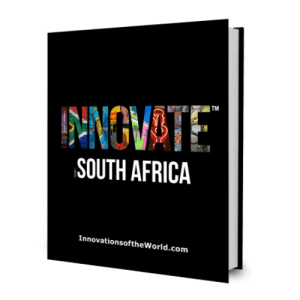Using Michael Porter’s cluster theory as a cornerstone of its strategy, CiTi designed interventions to grow, transform and enable a leading digital economy on the continent.
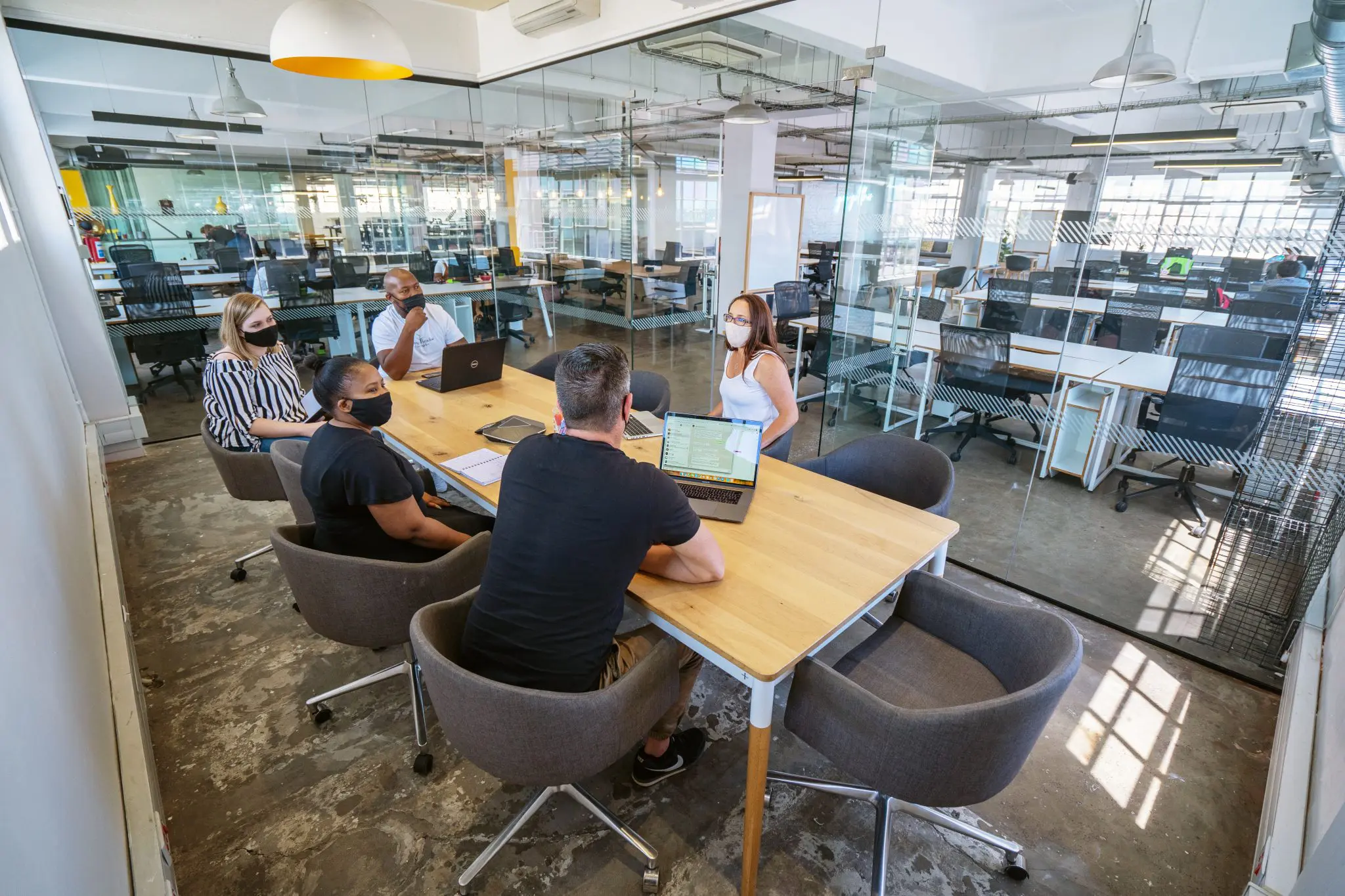
CiTi’s interventions have been acknowledged to have supported South Africa’s charge to the top of the inaugural fDi Africa “Tech Ecosystems of the Future”* ranking, achieving not only first place overall but first place for economic potential, start-up status and business friendliness. CiTi played a pivotal role in Cape Town being recognised as the Tech Capital of Africa, by Endeavor insight**, by the City of Cape Town, Invest Cape Town and the Western Cape Government.
We have used this base as our launchpad into Africa, and our programs have had an impact in over 3 000 business in sub-Saharan Africa***. Bridging the digital divide for the citizens of Africa is essential to the economic prosperity of the continent. The unemployment crisis in South Africa could better be described as a skills crisis. The school system and to some extent the tertiary education system are leaving the youth of the region poorly prepared and under-skilled for participation in a digital economy.
Just a Quick Note:
InnovationsOfTheWorld.com has partnered with Trade License Zone (TLZ) to support global innovators looking to expand internationally. Take advantage of the UAE’s Free Zones—enjoy streamlined setup, low corporate taxes, and a strategic gateway to the Middle East and beyond.
Get Your UAE Free Zone License Fast & Easy!Given the climate crises facing the globe, Africa is likely to bear a disproportionate impact of severe weather. Energy and water sustainability must now become a core policy focus for the continent. CiTi sees enormous potential in biotechnology as a technology that is able to do good and make a positive impact on people’s lives. BioCiTi, established by CiTi in 2019, is a specialised biotech incubator that provides African entrepreneurs a platform where science, business and investment can come together and address some of these issues.
CiTi’s strategy, current and future interventions are thus shaped by these burning issues. Education and digital skills development are core tenets of CiTi’s current and future strategy. Recognising the youth population “bubble” which is upon us and expanding every year, leads to an understanding that an even greater teacher shortage is looming in Africa. Innovative technology can and will play a major role in mitigating this constraint within the education system. Injini, now Africa’s leading EdTech incubator and accelerator with a mission to improve education outcomes in Sub-Saharan Africa, has evolved its role from the incubation of start-ups to accelerating high growth companies who can have impact at scale. CapaCiTi, CiTi’s digital skills accelerator continues to scale up its interventions, off a platform of having created 3 500 work opportunities in the digital economy for SA’s youth in the next three years.
* fDi Intelligence Report 2021
**Endeavor insight report Cape TownStellenbosch Tech Sector
***One Planet, Two Worlds, Three Stories: IMF Regional Economic Outlook report for SubSaharan Africa.
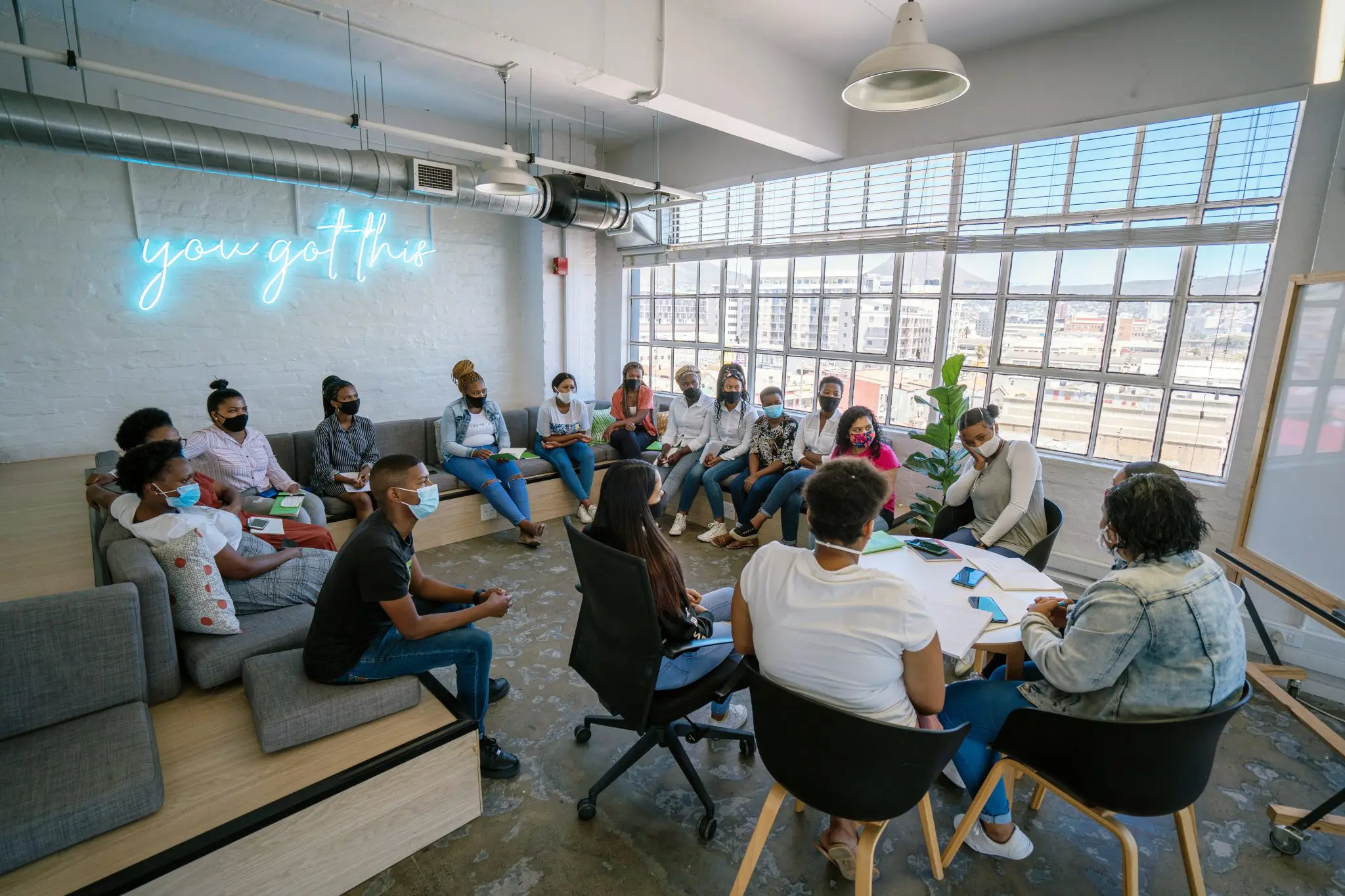
CapaCiTi Tech Career Accelerator
Skills development is at the beating heart of CITi’s agenda and the CapaCiTi Digital Career Accelerator programme is where it finds its true expression. CapaCiTi enables the inclusive growth of the digital economy by ensuring a supply pipeline of future-fit, skilled people, with relevant digital skills matched to industry demand. Since 2010 we have been developing and fine tuning a solution that could affect the economic integration of African youths by teaching them digital skills at scale to prepare them for the workplace of the future.
Our graduates learn the skills that give them access to positions in some of the most exciting corporations in South Africa. 60 % of our unemployed South Africans are youth, and the digital divide in South Africa is growing which impacts access to skills, technology and online learning. Marginalised youth are struggling to keep up with the increased digitisation of government, society, education and the economy. It is critical for us to mobilise the huge untapped and underutilized youth assets in South Africa.

CapaCiTi perfected a learning model that imparts technical skills that candidates will need to do the job, soft skills that makes them workplace ready when they graduate, and the career critical skills that lead them to continued growth and professional development. CapaCiti is a finely balanced code, with each component part enhancing the other, and where we put the whole person at the heart of all we do.
What have we achieved in the last three years?
• Trained 2,268 unemployed youth with digital skills, career critical and job critical skills;
• Created 3,663 meaningful employment opportunities for youth;
• R43M paid in stipends to enable youth to learn without concern about transport, food, and data costs;
• R240M salaries earned to date by youth for jobs offered post-graduation, enabling socioeconomic mobility and growth opportunities for young people, their families and communities;
• 65% of the Permanent Jobs created in the last three years are in IT related roles; and
• 10% of our graduates are already in leadership positions.
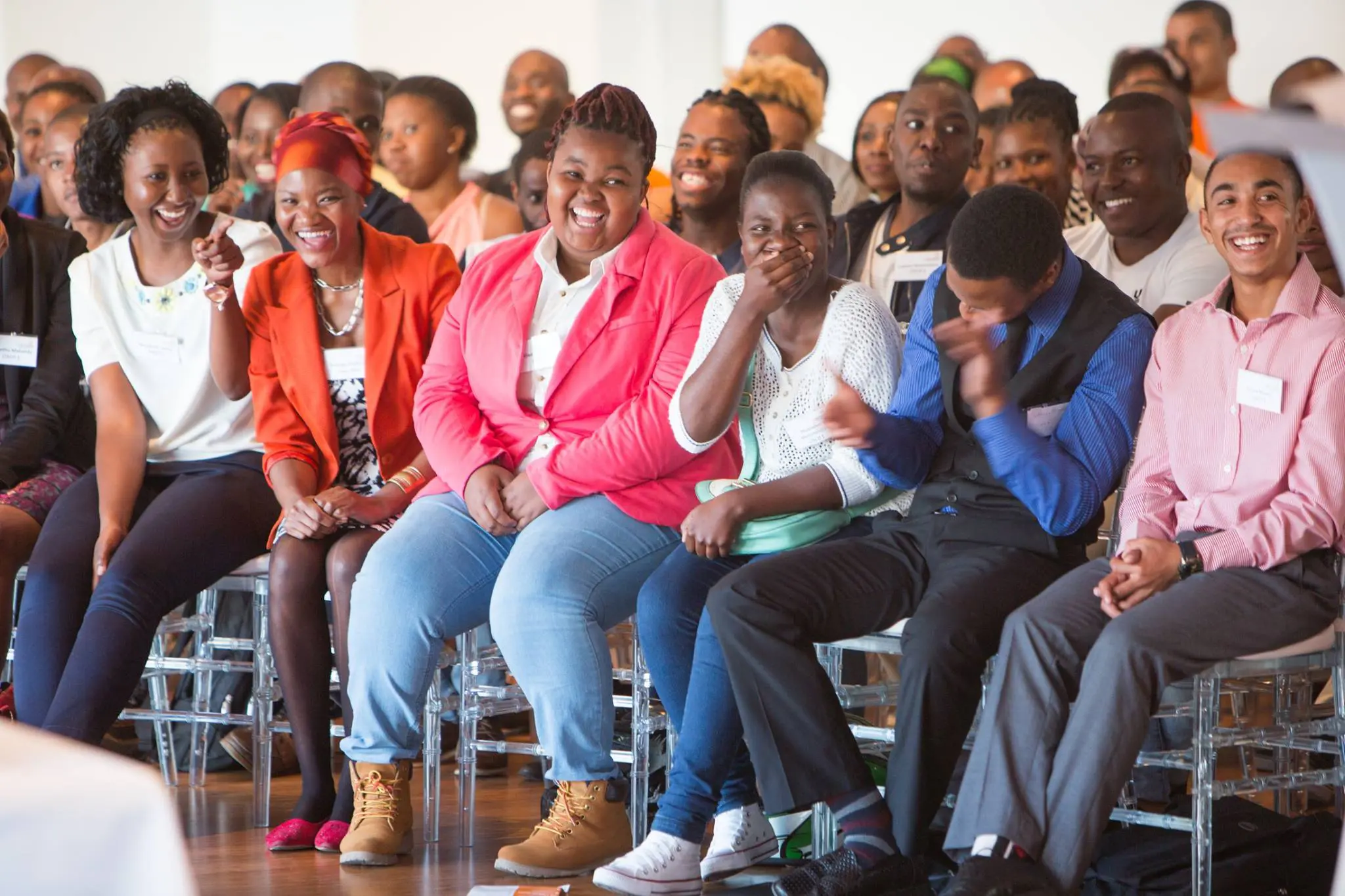
The three skills areas that absorb the most candidates are Data Science, Cloud and Developer sectors. ‘The pathway into IT careers and unlocking the digital economy is not just about the here and now. We need to create a talent pipeline that might take anywhere between 12 months and five years to solve the current skills crisis,’ says Chief Executive Fiona Tabraham. ‘There have to be multiple entry points at varied levels to pathway unemployed youth into the workplace. This forward thinking approach is built on informed conversations between the organisations that are developing talent at scale, the organisations who have demand at scale, and the government and corporate funders who are driven to support meaningful change at scale.’
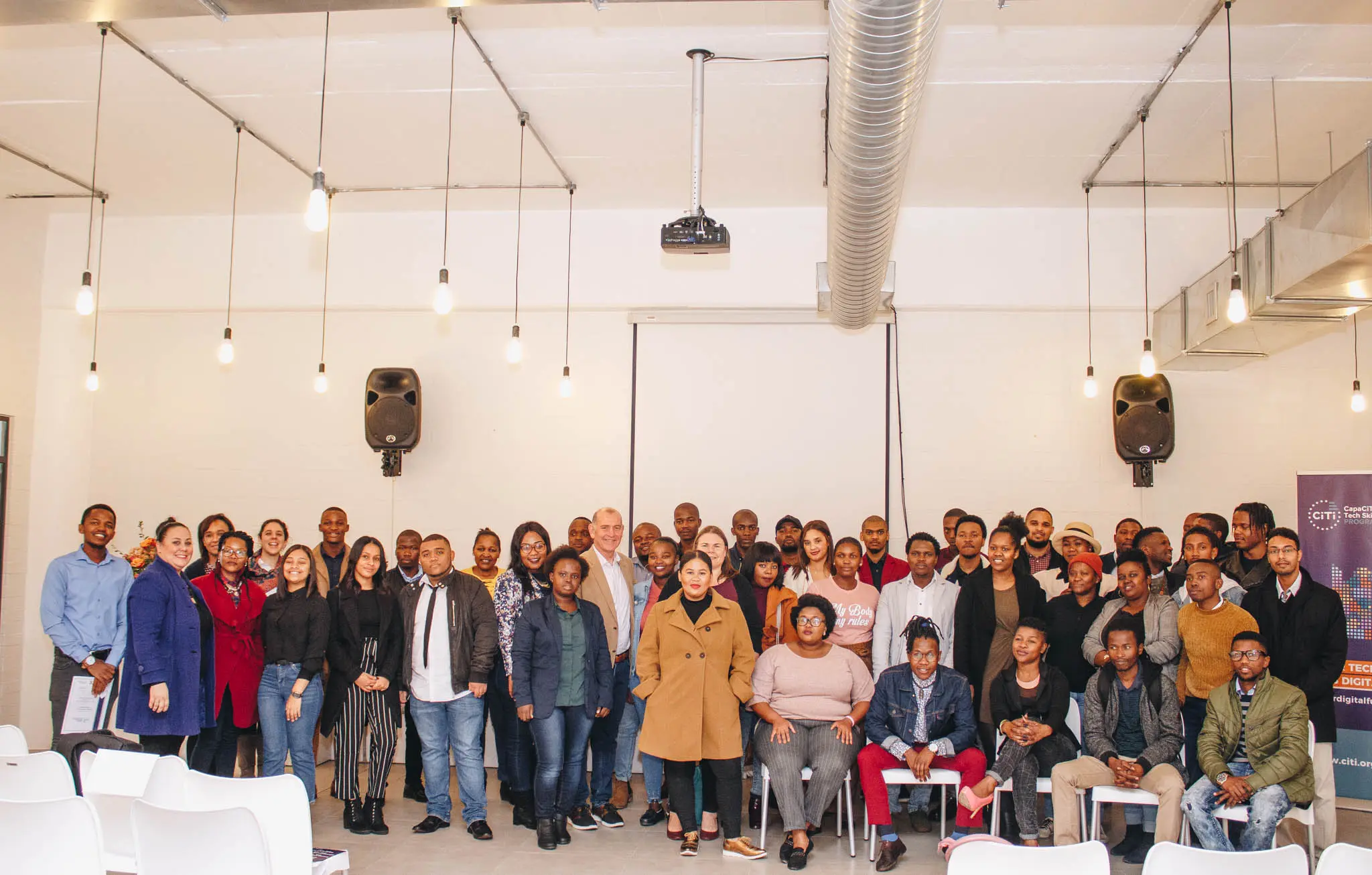
Together CapaCiTi can offer clear, tailored pathways for youth into digital economy jobs, entrepreneurship, or further education that will lead to systemic change.
CapaCiTi’s goal for the next five years is to accelerate the delivery of demand-driven, technology bridging programmes to digitally-marginalised people at scale. We must shift the perception of what ‘talent’ is, achieve Africawide growth, and deliver catalytic economic change that has a broad and positive impact on African society.
“The thing that sets Capaciti apart time and time again is that we do this work with full hearts,’ says Tabraham. ‘We care deeply about our candidates and we care deeply about doing things right so that we can make a difference in people’s lives.”
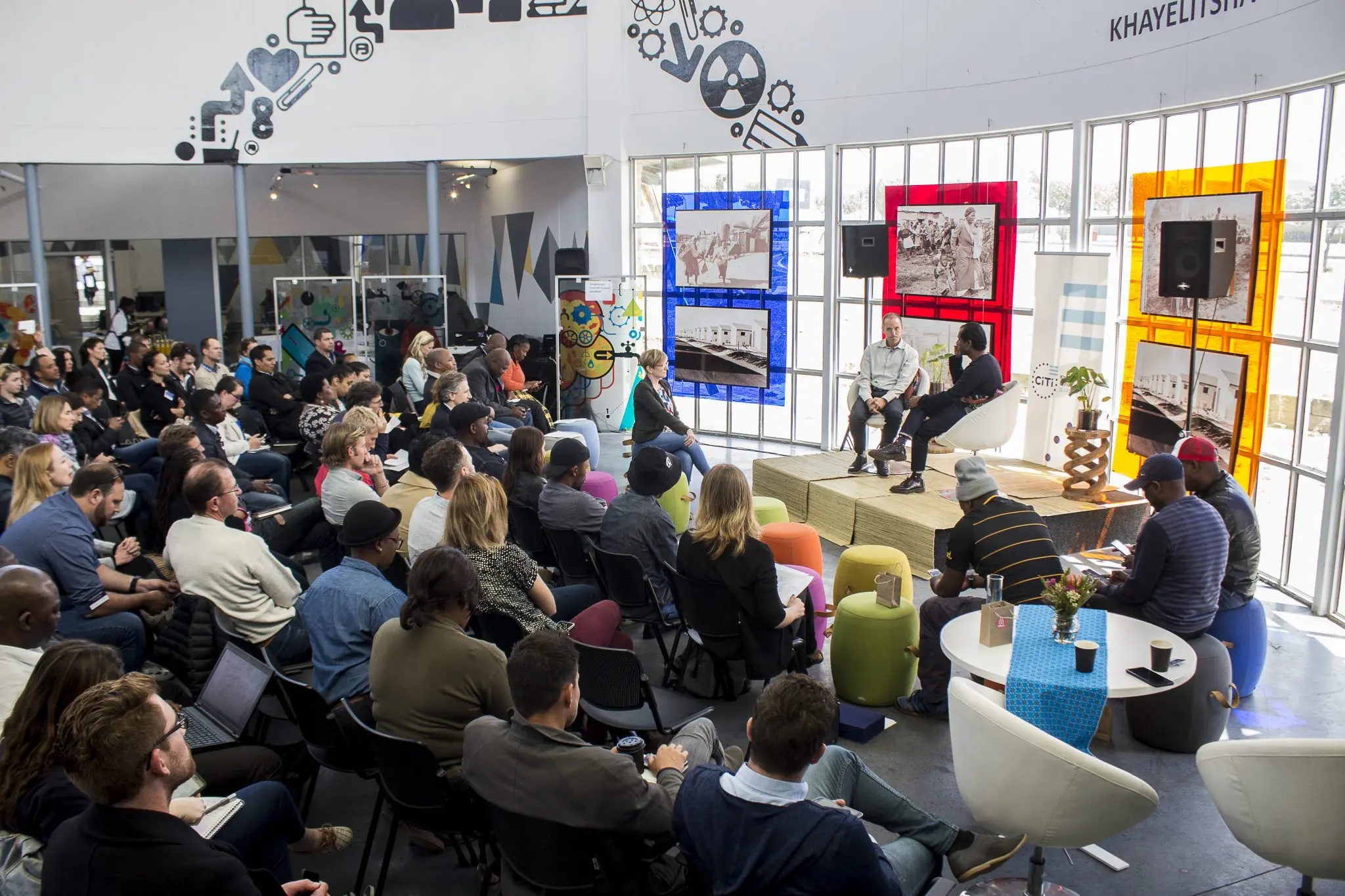
Township digital entrepreneurs face an uphill battle in unlocking the benefits of the digital economy, but with the size of the market and the eagerness to embrace digital solutions, the potential they have to scale meaningfully is massive.
Situated at Lookout Hill, which is in the heart of the Khayelitsha/Mitchells Plain Development Corridor, the Khayelitsha Bandwidth Barn (KBWB) is CiTi’s second location and the anchor of the township technology innovation cluster.
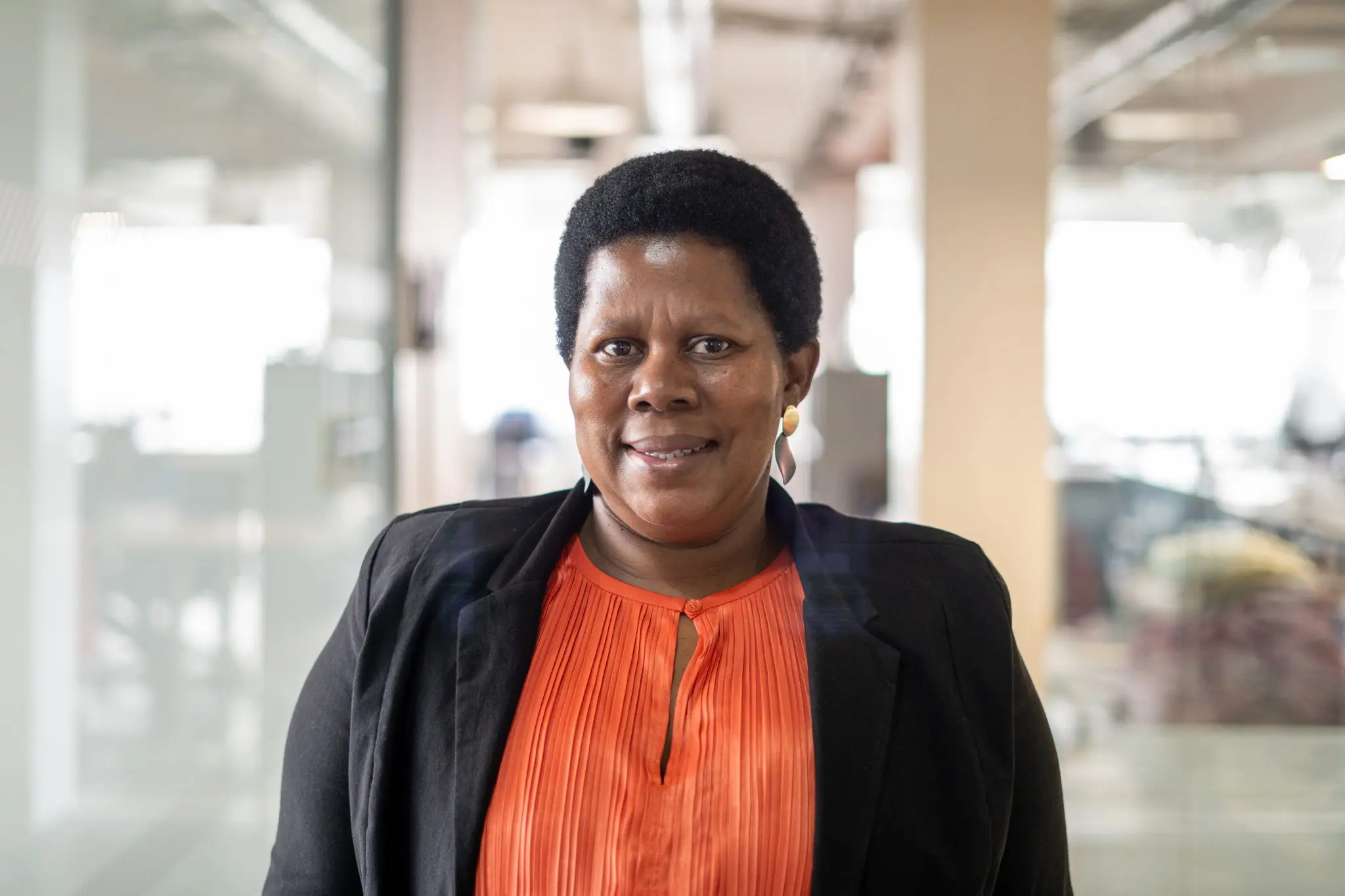
The aim is to empower people living and working in Khayelitsha with the skills and platforms to enable them to benefit from the digital economy and the tech industrial revolution.
Being one of South Africa’s few township-based tech hubs has provided us with priceless insights.
Today, the KBWB is a key enabler of inclusive innovation, supporting entrepreneurs and organisations to create products and services for township economies and beyond.
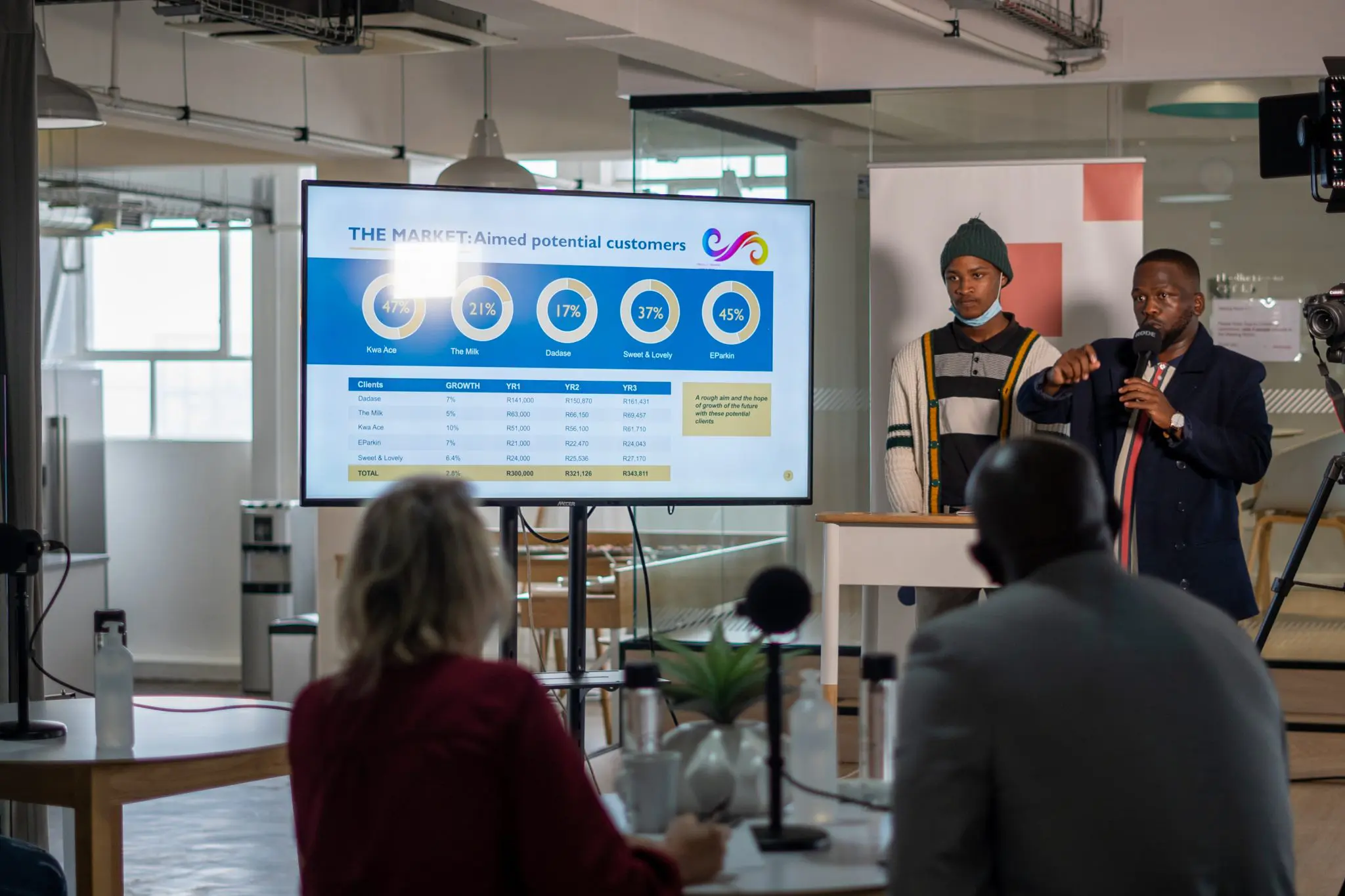
We have piloted entrepreneurial and ‘Digital Citizen’ skills training projects with a township focus, and have developed a compelling case study that could be implemented in various sites across the country.
Over and over, the KBWB has lifted up people and small businesses that don’t easily have access to financial assistance or social capital. We support them in developing tech and business skills and encourage the local community to take part in our creative and social spaces, while processing all the ideas and energy into innovative technology products and services that will hopefully improve the daily lives of the people around them.
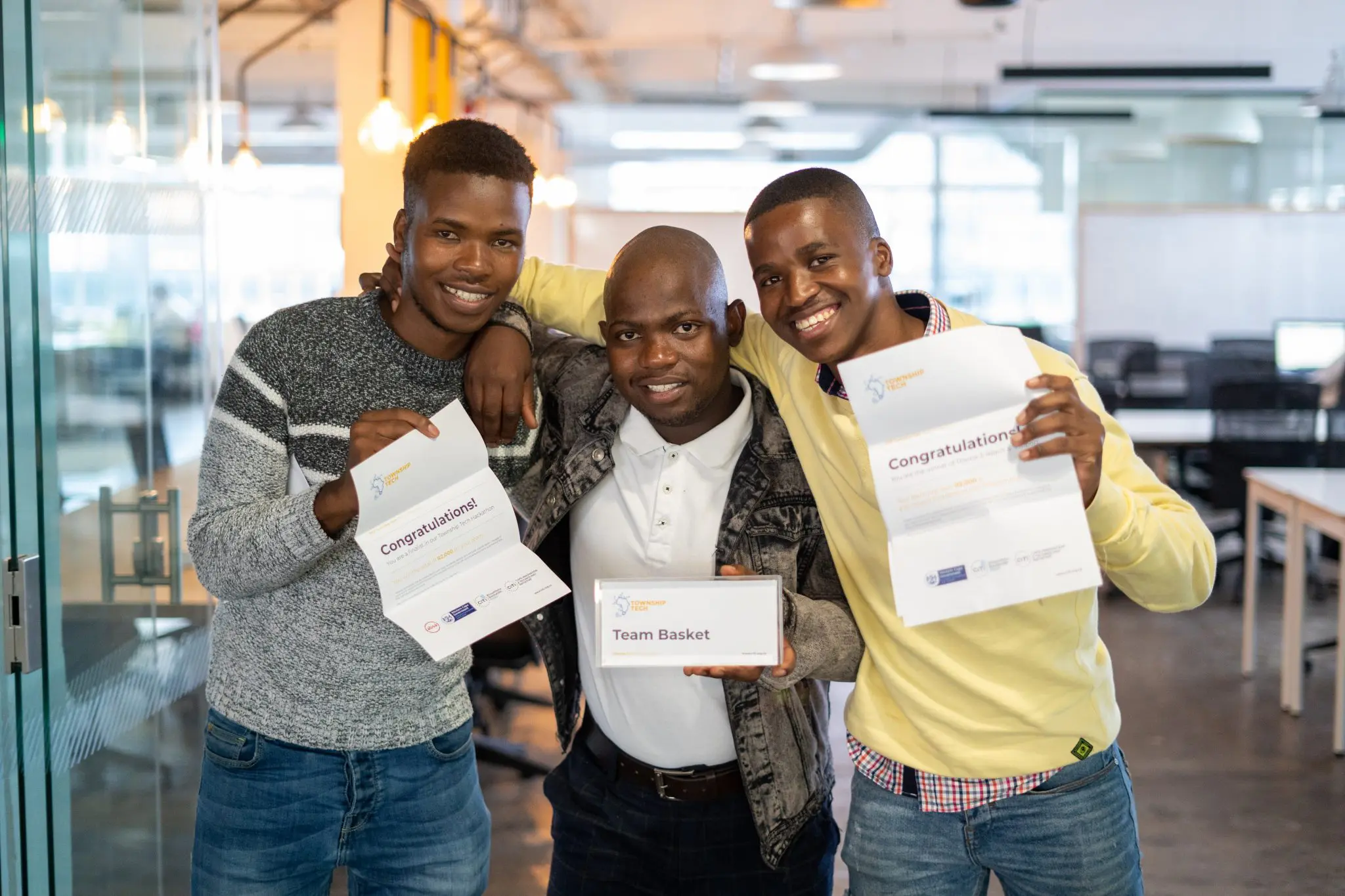
On a practical level, the KBWB is instrumental in;
- Securing funding and opportunities for funding for township entrepreneurs;
- Monitoring entrepreneurs and engagement into the ecosystem to identify scalable businesses;
- Providing access to connectivity and workspace at the Barn on Lookout Hill; and
- Providing entrepreneurial interventions that improve awareness and knowledge about technology tools and products that support new businesses and communities.
Today, our ambition has grown beyond Khayelitsha to include neighbouring townships and areas across South Africa where we can have maximum impact.

VeloCiTi Entrepreneurial Dev Programme
When South African President Cyril Ramaphosa said to the nation that ‘We must look at what needs to be done to promote and encourage the entrepreneurial spirit and an entrepreneurial culture’, we took the challenge seriously. We have worked tirelessly through the VeloCiTi business unit to grow and support entrepreneurs and entrepreneurial ventures in South Africa through tech enablement, extensive mentorship across various verticals, funding and ecosystem access.
The support we offer takes numerous forms; from facilitating peer-to-peer learning, to one-on-one mentorship sessions with a focus on finance, technical, business and industry specific interventions where we tackle specific obstacles that need to be overcome to move the businesses forward to their next growth checkpoints, workshops, programmatic support as well as networking events which demystify the ecosystem and group mentorship sessions to create learning units that promote diversity of thinking, practice, and understanding.
By growing, supporting and scaling businesses we are fueling job creation, employment and stimulating the economy.
Lara Rosmarin is Head of Entrepreneur Development and Incubation at CiTi. She believes that ‘entrepreneurs need a customised approach to supporting their specific business needs. Being able to define what success looks like, creating a roadmap supported with the right assistance and input across a myriad of channels creates optimal conditions for success. For entrepreneurs to practice Getting Stuff Done on a daily basis, enables focus and commitment and leads to asking the right questions which are crucial to the decision making process as they strive for impact and growth.’
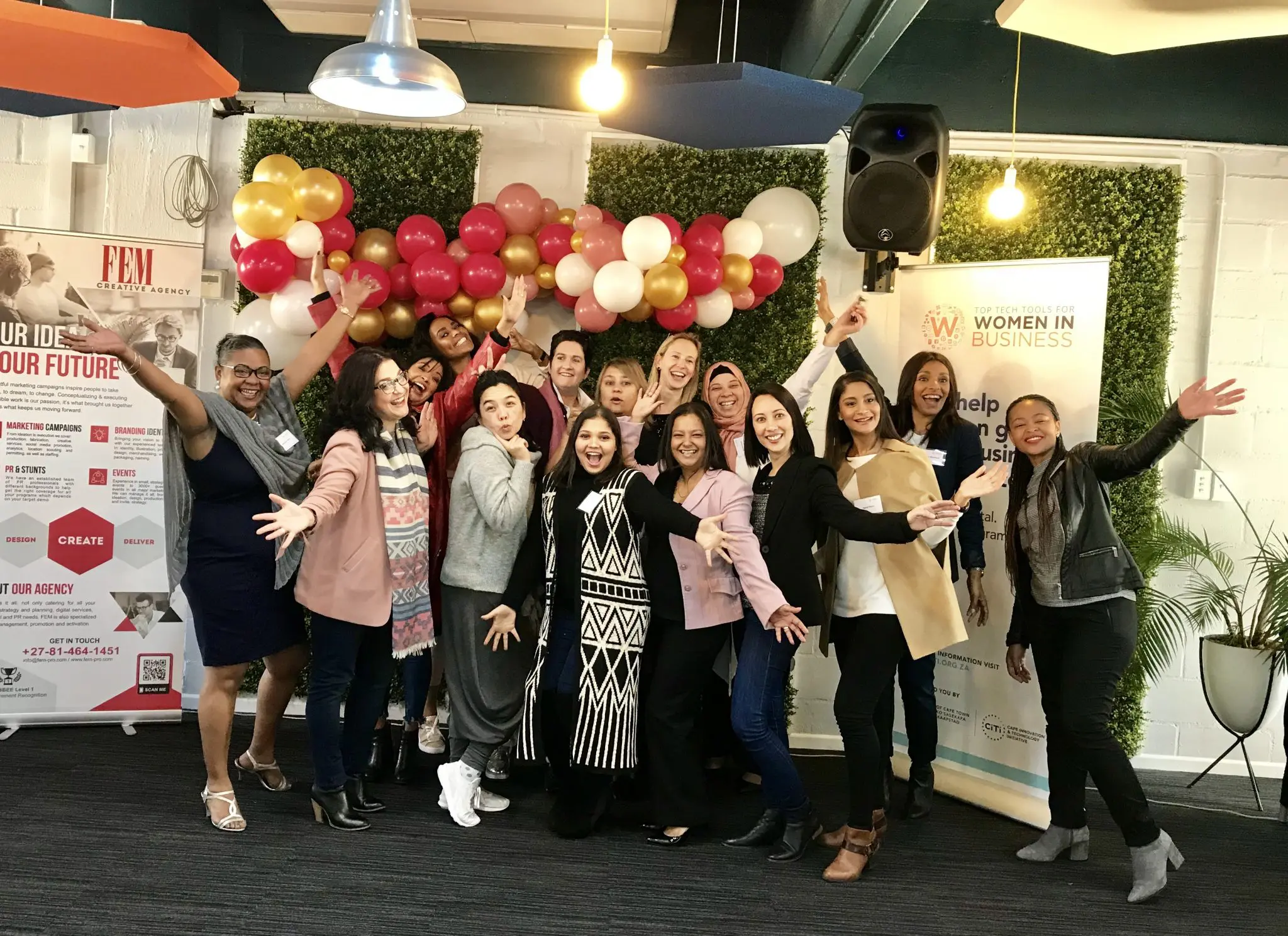
At VeloCiTi, we believe our biggest upcoming opportunity lies in the Women In Business (WIB) programme, which is a flagship programme aimed specifically at providing strategic support and developing the capacity of female entrepreneurs. During the programme, women business owners are introduced to an extensive range of powerful online and digital programmes and platforms that support their business activities and enable them to successfully compete in the digital economy.
The delivery mechanism for WIB consists of online Zoom classes, peer-to-peer mentorship support, one on one mentorship and a 10-month continuing education programme. Virtual graduation events have been a big success in WIB and include guest speakers and presentations showcasing the amazing women who completed the programme, certificates, and gift packs for each participant. The ecosystem of incredible women that are collaborating and supporting one another through this journey has been game-changing.
VeloCiti’s primary goal over the next 12 months is to continue to scale the Women In Business programme nationally and then into Africa, as well as providing support to the smaller incubators that are funded, but lack products and services. Our mentorship support programmes remain a top priority in supporting the entrepreneurs within our ecosystem to grow and scale in a sustainable way.

Injini Africa’s EdTech Accelerator & Think Tank
Injini, Africa’s EdTech Accelerator & Think Tank and a business unit of the wider CiTi group, has a singular purpose: to improve educational outcomes in sub-Saharan Africa.
Founded in 2017, it started as Africa’s very first EdTech incubator, and today, is still the only dedicated support organisation on the continent for education technology (EdTech) businesses and stakeholders. With three distinct focus areas – EdTech startup business acceleration, African EdTech ecosystem development and research, advisory and advocacy in education innovation for the region via the newly established Injini Think Tank – Injini strives to improve conditions for evidence-driven education technology innovations to develop, grow and be implemented effectively; ultimately improving the quality, access and relevance of education across sub-Saharan Africa.
In the early days, Injini spread itself rather thinly, working across the whole spectrum, of the EdTech sector in terms of both education stage and business maturity, but gradually, the team decided to focus on supporting high impact EdTech business founders and business leaders who were already demonstrating potential to improve learning outcomes throughout sub-Saharan Africa and have a specific focus on impacting the lives of children.

Following this insight, Injini’s Acceleration Partnership programme developed to include:
• Financial support – in the form of grant funding, direct investment by Injini or CiTi, and external fundraising support;
• Coaching – sponsored consultations with industry experts and subject matter specialists on topics ranging from curriculum design to marketing to financial management to impact M&E;
• Mentorship – from the Injini team and experienced business leader(s);
• Strategy support – from the Injini team and through external facilitators where required;
• Bespoke market research support via the Injini Think Tank;
• Access to network – Injini introduces founders to prospective funders, partners, clients, and other stakeholders;
• Upskilling opportunities – where appropriate, Injini sponsors founders’ skills development by providing bursaries for accredited short courses; and
• Capacity building – through sponsored or subsidised access to operational resources (e.g. graphic design, marketing, PR, administration, software development, accounting, HR, etc.); possibility to be assigned dedicated interns or receive freelance support from seasoned professionals; and more!
Alongside the Acceleration Partnership programme, Injini also hosts and powers EdTech events throughout Africa that prompt local stakeholders to engage in meaningful conversations on the need for innovation in education delivery in their communities and identify potential solutions to fill the gaps. These conversations, alongside Injini’s research initiatives, aim to deliver tangible change in the education systems that can stand to benefit most from the uptake of evidence-based innovation.
By accelerating these EdTech business opportunities and creating the environment for more EdTech innovations to be developed and thrive, Injini and CiTi are making a meaningful contribution to the lives of the end beneficiaries: children all over Africa who have the right to access high-quality education that will set them up for success in the classroom and beyond.
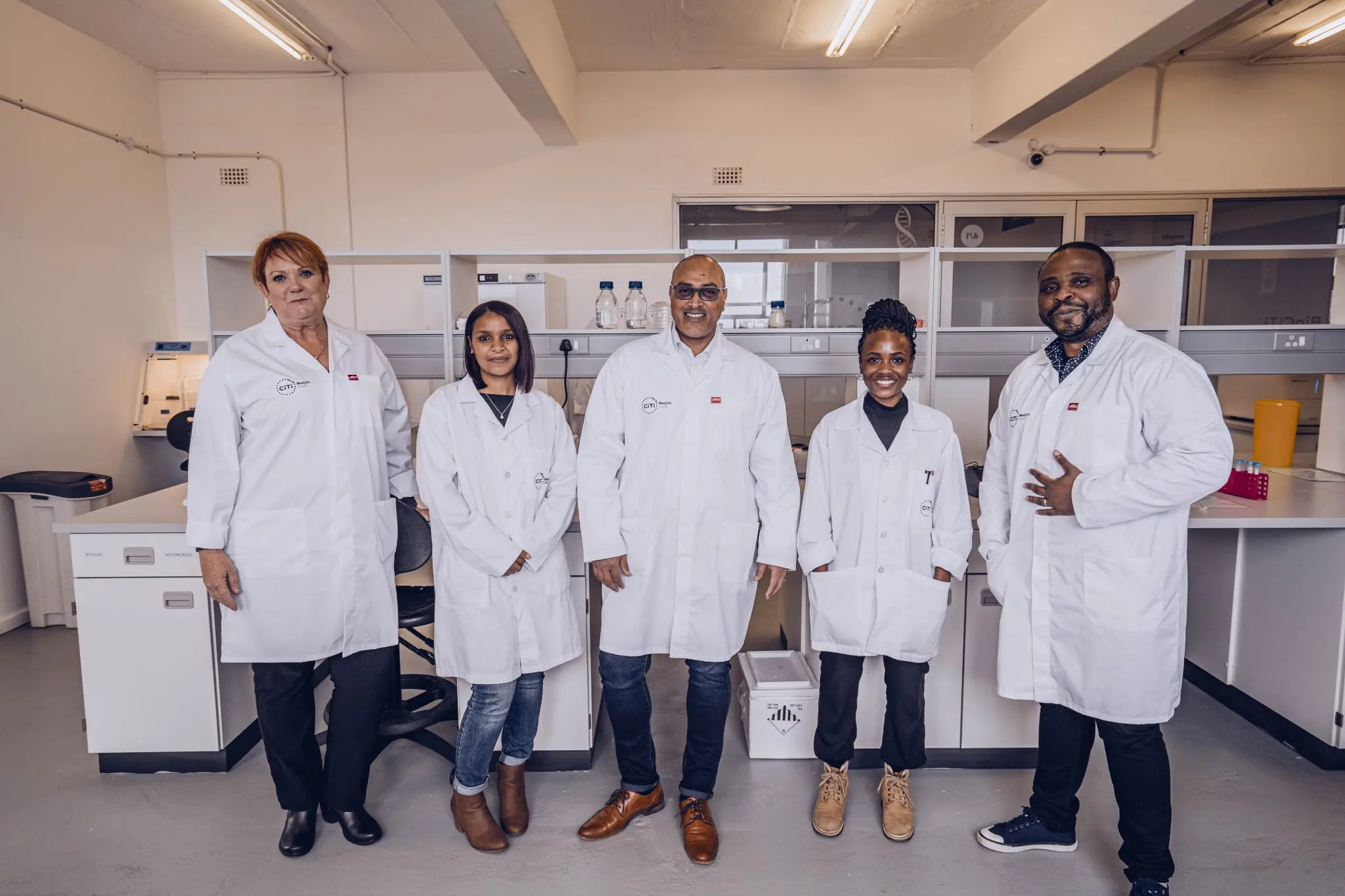
BioCiTi Labs
BioCiTi is an ecosystem enabler focused on stimulating a bioeconomy future for Africa. Our purpose is to support Biotechnology businesses to harness Africa’s biological potential to make meaningful contributions to the GDP growth and job creation targets.
The Biotech sector received a massive boost in the arm recently from the selection of two Cape-based companies, Biovac and Afrigen, to produce Covid-19 vaccinations for Africa, and with that in mind, BioCiTi saw a gap and positioned itself to be a pivotal player in developing the emergence of the sector and we need to leverage that to create a springboard into the rest of the continent.
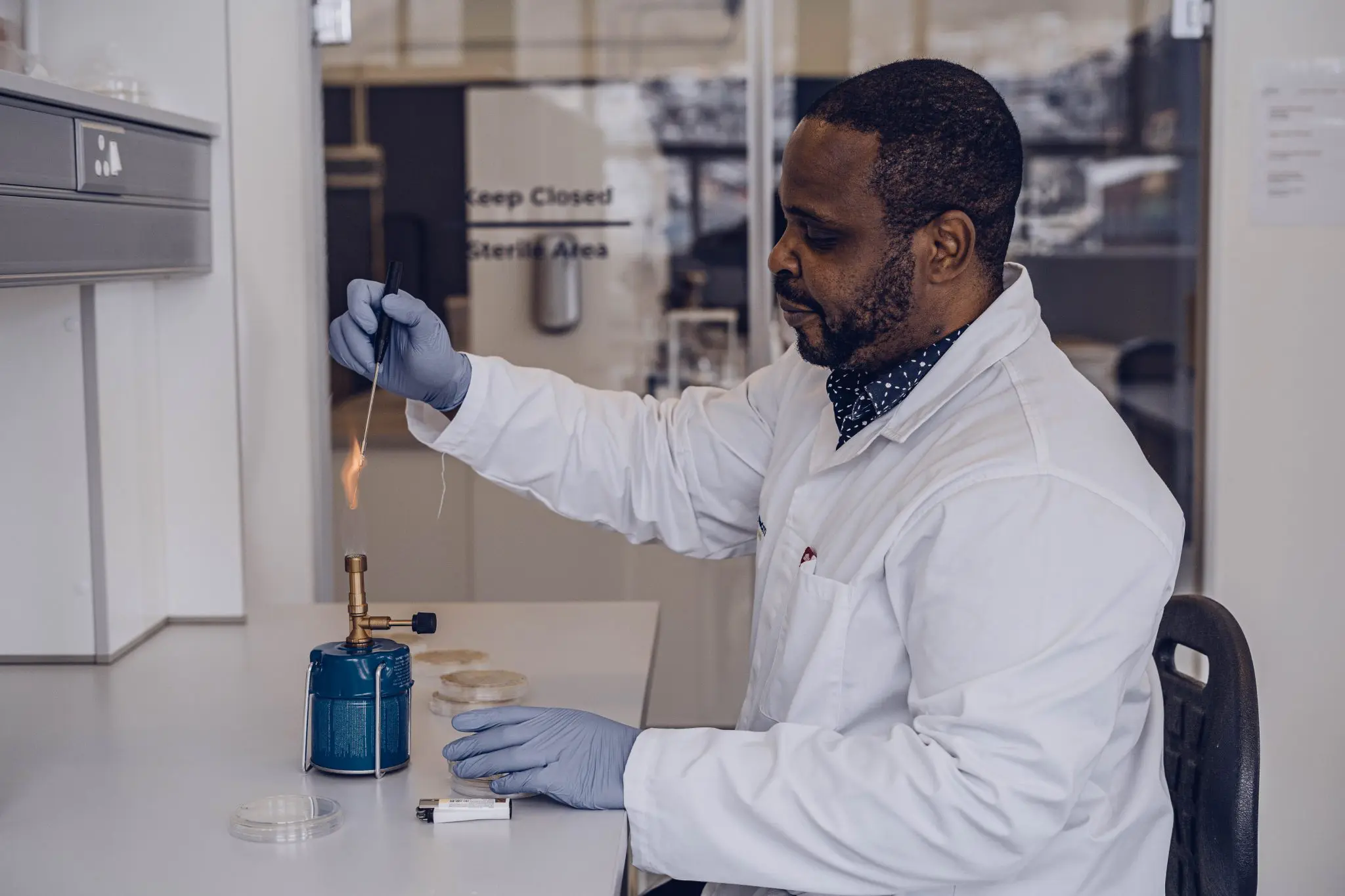
Typically, incubators just provide finance, marketing, and business mentorship. Where we differ is with our world-class laboratory facility in the dynamic suburb of Woodstock, Cape Town, which is operated on a shared access model alongside shared access office space and resources. BioCiTi further expanded its offering to include contract R&D to support business growth. The contract R&D offering makes this important service accessible and affordable to start-ups and SMMEs.

‘Biotech start-ups have not been gaining momentum due to lack of appropriate support mechanisms to mitigate early-stage business risks,’ explains BioCiti Cluster Head Dheepak Maharajh.
BioCiTi is able to create something dynamic and longlasting, in collaboration and partnership with the biotech industry:
• De-risking the R&D and business landscape for Biotech Start-ups and SMME’s;
• Developing “Tech for Good” in a meaningful & sustainable manner that will positively impact the lives of people living in Africa;
• Producing industries of the future by creating a bridge between research and commercialisation through access to shared lab space, business support, mentorship and community; and
• Catalysing the creation of Biotech clusters through collaboration with academia, government society and big business.

Ultimately, BioCiTi has the goal of becoming the premier partner in Africa for biotechnology incubation and acceleration.

